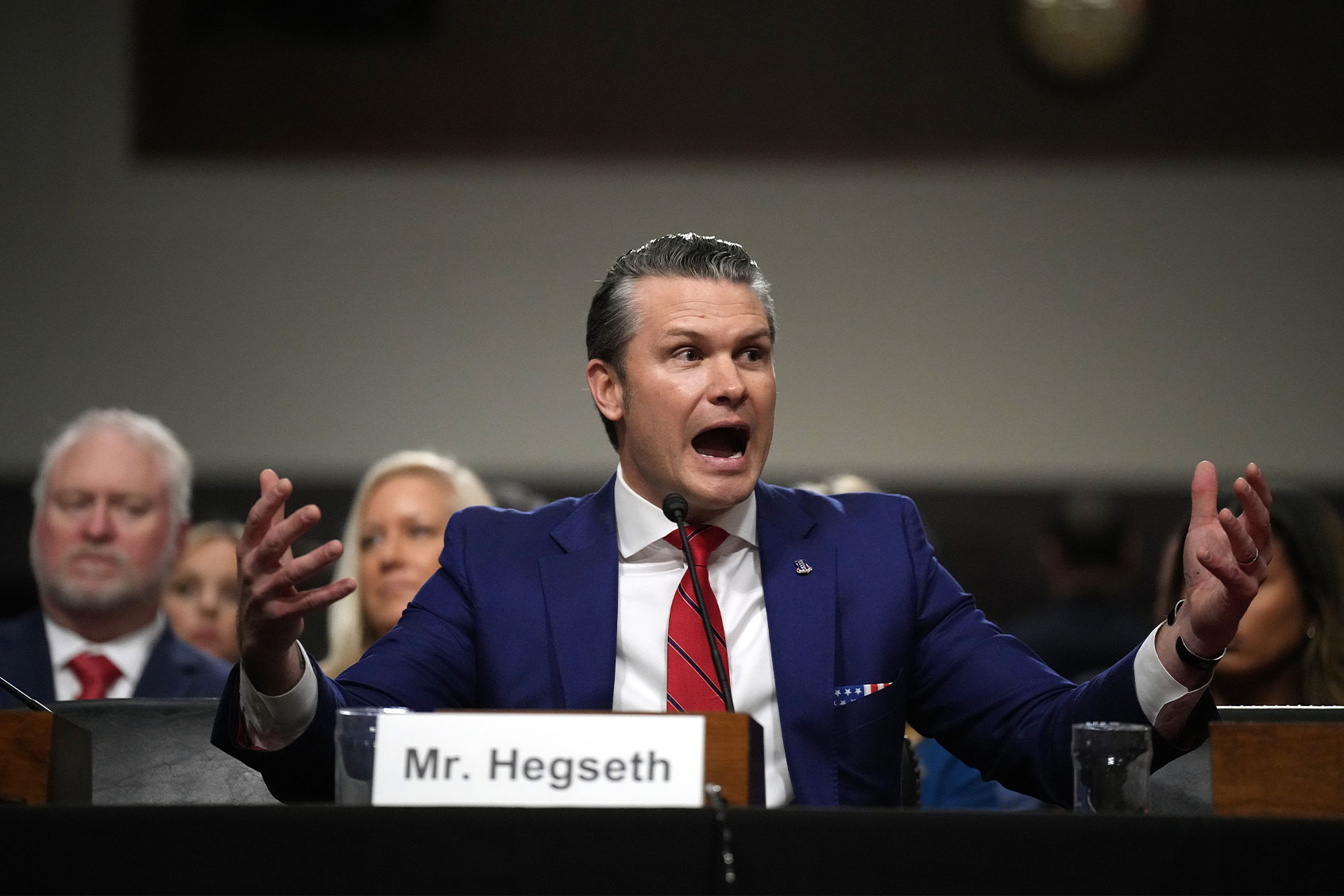Donald Trump’s administration, one of the leakiest I’ve seen in my career, is incensed that someone leaked an internal Defense Intelligence Agency (DIA) “Battle Damage Assessment” that the United States’ bombing of Iran’s nuclear facilities was not as obliterative as President Trump claimed. “We are declaring a war on leakers,” said a senior White House official, who blamed “Deep State” actors.
Apparently, the White House didn’t get its own memo in April, which claimed it would crack down on cases “where a Government employee discloses sensitive information for the purposes of personal enrichment or undermining our foreign policy, national security and government effectiveness.” For good measure, Attorney General Pam Bondi repeated Trump’s threat and declared, erroneously, that “this conduct could properly be characterized as treasonous,” a crime that carries the death penalty.
Unlike Trump, Noem didn’t enlist the FBI in her efforts, but rather, as I wrote, blamed them for the leak before realizing it came from her own staffers.
Trump also overlooked the leak offensive DHS Secretary Kristi Noem already launched when the Los Angeles Times reported that the city was ground zero for Immigration and Customs Enforcement (ICE)’s mass deportation campaign: “We will work with any and every agency to stop leaks and prosecute these crooked Deep State agents to the fullest extent of the law.” Unlike Trump, Noem didn’t enlist the FBI in her efforts, but rather, as I wrote, blamed them for the leak before realizing it came from her own staffers.
Nor did Trump recall that his own Director of National Intelligence (DNI), Tulsi Gabbard, previously announced her own battle on “politically motivated leaks.” Not only did he forget her tough talk on leaks, but Trump threw her under the bus because she testified truthfully back in March that Iran was not building a nuclear weapon and had not reauthorized its long-suspended nuclear weapons program.
But the icing on the cake of leakocrisy came from the Pentagon’s “Leaky Pete” Hegseth himself: “Of course we’re doing a leak investigation with the FBI right now, because this information is for internal purposes, battle damage assessments . . . And CNN and others are trying to spin it to make the president look bad, when this was an overwhelming success.” The defense secretary — no stranger to leaks, having perpetrated doozies himself — failed to mention that leaking is not a crime unless it involves the mishandling of national defense information. That would have been an easy argument for him to make, given that the topic was an enemy’s nuclear program, but Hegseth missed it completely.
He could have also legitimately claimed that this leak involved classified information for the same reason: nuclear program information. Hegseth again missed that low-hanging fruit, largely because he and the chairman of the Joint Chiefs of Staff were too busy holding a press conference for Trump to promote the revisionist narrative that the airstrikes on Iran were a whopping, historical success.
The elephant in the room was Hegseth himself. If Trump really wanted to crackdown on spilled secrets, he would have fired the defense secretary over “Signalgate,” the FUBAR in which National Security Advisor Mike Waltz unwittingly invited the editor of The Atlantic into an unsecured chat where Hegseth and other principals texted about real-time U.S. airstrikes on Yemen.
What unites all these wars on leaks is not the potential or actual harm they’ve caused, but rather the amateur-hour sloppiness that underlies them, the retaliatory stench of the aftermath, the performative overkill in slaughtering scapegoats and the transparent level of government embarrassment. Especially the embarrassment. The only thing worse than exposing crimes of the powerful is embarrassing those in power — especially someone as thin-skinned as Trump.
When I blew the whistle on the Justice Department in a high-profile terrorism case, my boss’s concern was not why our office had withheld responsive emails from a federal court, but rather why we “shouldn’t look bad for not turning everything over.” When the Office of Personnel Management got hacked, former National Security Agency and CIA director Michael Hayden said, “My deepest emotion is embarrassment” — not alarm over one of the biggest breaches of American’s data in history or how to cure it.
We need your help to stay independent
When you look back at the government’s 15-year-old war on leaks, it mainly targeted employees who revealed truthful information in the public interest, including U.S. Army whistleblower Chelsea Manning; CIA whistleblowers Jeffrey Sterling and John Kiriakou; and NSA whistleblowers Thomas Drake, Edward Snowden and Daniel Hale. These leaks were notable for revealing some of the darkest government secrets this century, including torture, secret mass domestic surveillance, civilian drone strikes and war crimes. At their core, however, they deeply humiliated the government’s macho national security and intelligence agencies. Manning exfiltrated information on a CD marked “Lady Gaga” in full view of her fellow soldiers. Air Force veteran Reality Winner smuggled out a classified report on Russian election hacking by tucking it in her pantyhose. Edward Snowden removed information using a SD memory card he hid on some occasions in a Rubik’s cube. These are not the high-tech leaks of “Mission: Impossible” or “The Matrix” franchises.
So when Trump bloviates about a “new” war on leaks, that’s his fevered, paranoid, history-challenged grievance speaking. Leaks are as old as democracy, especially in the military and defense arenas. Daniel Ellsberg’s leaks of the Pentagon Papers occurred more than 50 years ago. If Trump and his surrogates listened to the message, rather than Whac-A-Moling the messengers, they might realize that leaks are a time-honored corrective to excessive secrecy and corruption. They are a safety valve for democracy.
The best way to plug leaks is by providing meaningful and effective whistleblower channels, curbing the use of security clearances for retaliation, and stopping lying to the public about provably false information. It’s a lot easier than policing, polygraphing and punishing your own employees, and much more fruitful than endless, expensive, demoralizing investigations.
Read more
about this topic


